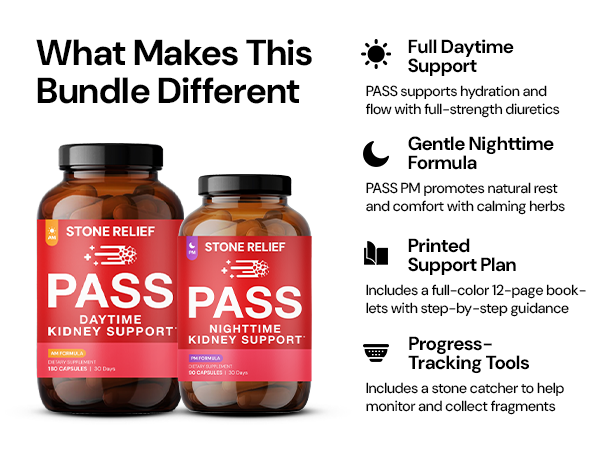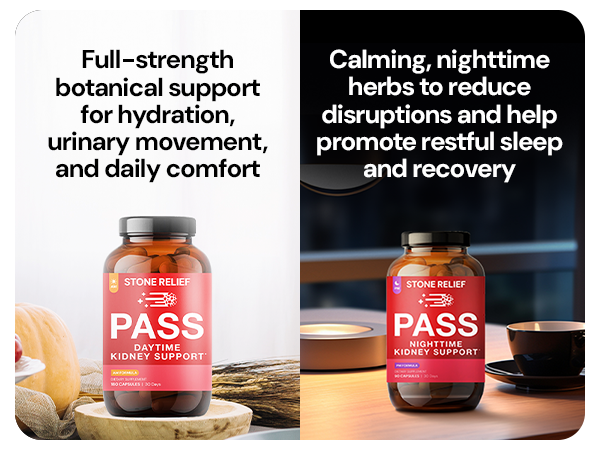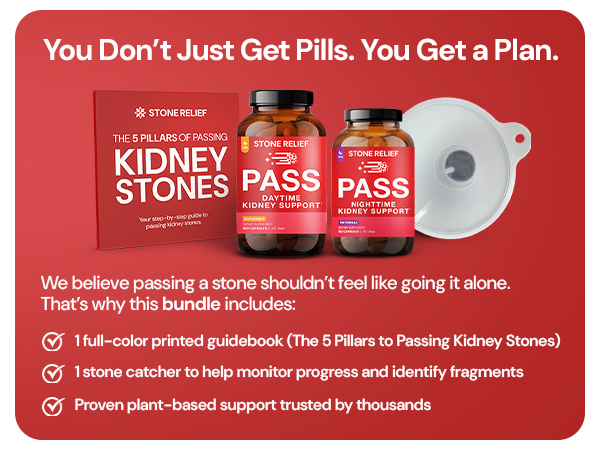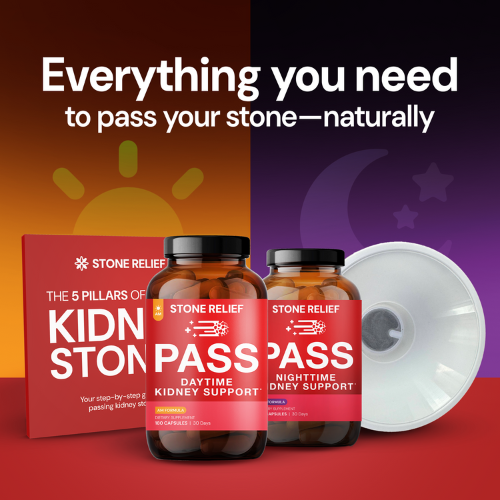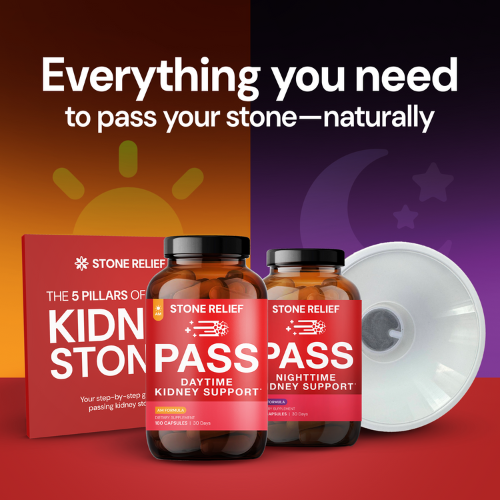How the Vasopressin Hormone Impacts Kidney Stones
Understanding the vasopressin hormone is key to managing your risk for kidney stones. This powerful hormone controls your body's hydration balance, directly impacting urine concentration and stone formation. In this blog, we dive into how vasopressin works and how simple hydration habits can lower your risk.
Key Takeaways:
-
Vasopressin controls urine concentration, blood pressure, and kidney function.
-
Increased vasopressin levels raise the risk for kidney stones.
-
Hydration suppresses vasopressin release, lowering stone formation risk.
-
Diet choices heavily impact lithogenic (stone-forming) particles in the urine.
When your doctor tells you to drink more water for kidney stone prevention, it's not just empty advice. It’s tied directly to a powerful regulator in your body called the vasopressin hormone.
Vasopressin, also known as antidiuretic hormone (ADH), is produced in the hypothalamus of the brain. This hormone plays a critical role in several important processes:
-
Urine concentration
-
Blood pressure and blood volume
-
Sodium balance
-
Kidney function
-
Overall water balance inside your cells
The way vasopressin manages water inside the body has a massive ripple effect. Especially when it comes to kidney stones.
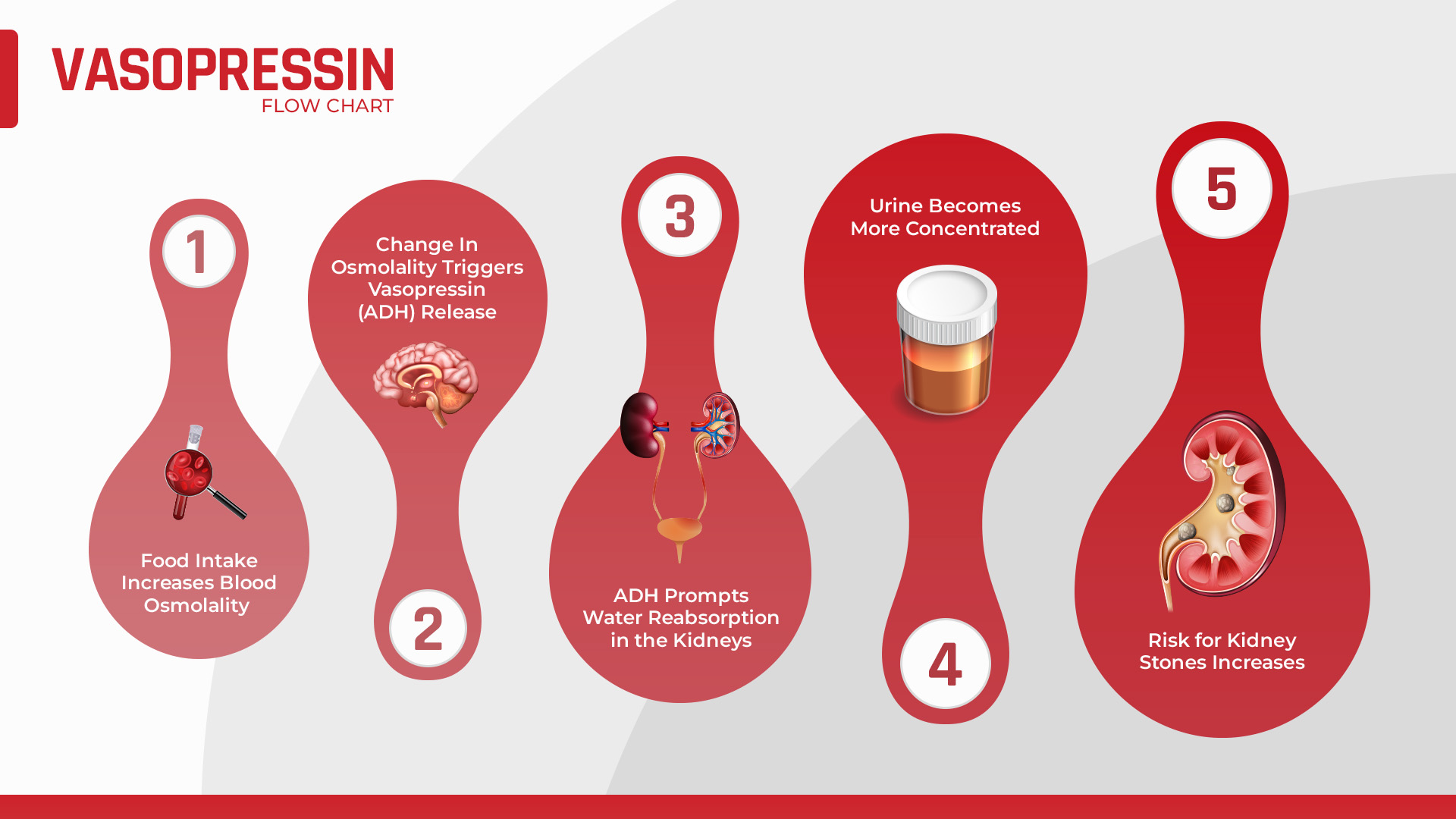
How Vasopressin Maintains Water Balance
Whenever there is a shift in blood concentration—such as increases in sodium, glucose, or other electrolytes—the brain senses the imbalance. In response, it releases vasopressin.
Vasopressin's main job is to tell the kidneys to reabsorb water instead of letting it pass out as urine. This process dilutes the blood and helps bring balance back.
When vasopressin levels are high, your kidneys conserve water, which results in more concentrated urine.
Concentrated urine is a major red flag for kidney stone formation.
If you have checked out our discussion on urine osmolality, you know that even a small shift (as little as 2 mOsm/kg) in your body's balance can trigger vasopressin release.
Factors That Influence Vasopressin
There are outside influences, too, that affect vasopressin production:
-
Alcohol suppresses vasopressin, causing you to urinate more often.
-
Nicotine increases vasopressin, causing water retention and more concentrated urine.
This is why smokers are at higher risk for kidney stones.
And it’s also why those drinking alcohol can quickly become dehydrated if not careful.
🛒 Check Price & Purchase Stone Relief Pass AM/PM Bundle on Amazon
Vasopressin and Kidney Stone Risk
So how does all this tie back to kidney stones?
When vasopressin levels are high, your urine becomes much more concentrated. Concentrated urine contains more particles like calcium, oxalate, uric acid, and phosphate.
More particles = more chances for crystallization.
Crystallization is the first step to a kidney stone forming. Over time, those tiny crystals clump together into larger, painful stones.
However, this only becomes an issue if stone-forming materials are actually present in your urine.
Diet Matters More Than You Think
The types of food you eat directly impact whether stone-forming particles are present:
-
A traditional American diet, with its moderate to high oxalate levels, increases your risk.
-
Vegan and vegetarian diets, despite being seen as "healthier," are often extremely high in oxalate, too.
I personally tried low-oxalate vegan and vegetarian diets for years.
Despite my efforts, I still suffered from kidney stones because oxalate builds up over time.
If your urine has a lot of oxalate and calcium, it doesn't matter how hydrated you are—stones will form eventually without dietary changes.
🛒 Check Price & Purchase Stone Relief Pass AM/PM Bundle on Amazon
Alkaline Urine and Calcium Phosphate Stones
Another hidden problem with vegan and vegetarian diets is that they tend to make your urine more alkaline.
Your body and your urine should stay neutral—around pH 6.5 to 7.5.
When urine becomes too alkaline:
-
Crystallization shifts from oxalate-based to phosphate-based stones.
-
Calcium binds to phosphate instead of oxalate.
-
This leads to different, but equally painful, kidney stone types.
If you’ve been advised to eat fewer animal products and load up on fruits and vegetables—and your stones changed types—this alkalization could be the reason why.
Rare Genetic Exceptions
For most people, diet and hydration are the main levers to control kidney stones.
However, there are rare conditions that complicate this:
-
Cystinuria – A genetic disorder where the body improperly processes the amino acid cysteine.
-
Primary Hyperoxaluria Type 1 – A condition where the liver produces excessive oxalate.
Luckily, these account for less than 1% of kidney stone cases.
What This Means for You
For the remaining 99% of people, you can take control.
Your diet and your hydration habits are the keys.
When You Drink More Water:
-
Vasopressin production decreases.
-
Urine becomes less concentrated.
-
Fewer particles stick together.
-
Kidney stone risk dramatically drops.
How to Manage Vasopressin Through Hydration
Increasing your water intake is one of the simplest ways to manage vasopressin naturally.
When you stay hydrated:
-
ADH levels stay low.
-
Urine osmolality remains normal.
-
Your kidneys flush out excess stone-forming materials regularly.
Actionable Tip:
If you aren’t sure how much to drink daily, check out our hydration strategy guide (linked on our website) to figure out the right amount for your body size and activity level.
Even better, we include simple alarms and reminders you can set to help you reach your goals without thinking about it all day.
🛒 Check Price & Purchase Stone Relief Pass AM/PM Bundle on Amazon
Final Thoughts on Vasopressin and Kidney Stones
The vasopressin hormone plays a powerful but often overlooked role in kidney stone formation.
By understanding how hydration suppresses vasopressin, you can take a huge step toward preventing future stones.
Focus on drinking enough water.
Focus on reducing lithogenic foods in your diet.
And remember—you have more control over your kidney stone risk than you think.
Stay hydrated, stay healthy, and stay stone-free!

